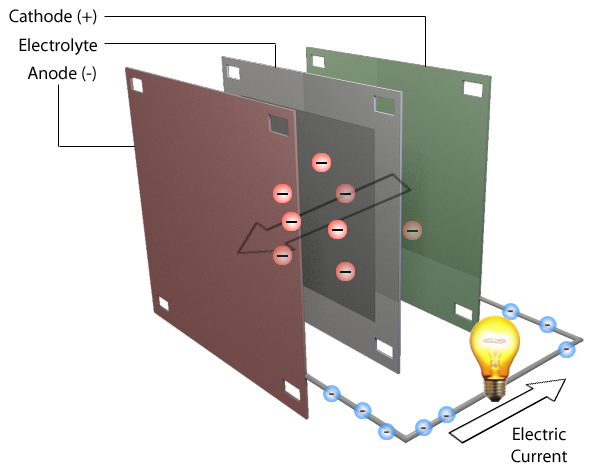THERE IS MORE TO WATER THEN WE THINK
Electricity generated from water: Major breakthrough in clean Free Energy confirmed

BlackLight Power, Inc. (BLP) announced last week a major breakthrough in clean energy technology, which experts agree holds tremendous promise for a wide range of commercial applications. The announcement comes on the heels of BlackLight’s recent completion of a $5 million round of financing to support commercial development of its new process for producing affordable, reliable energy from water vapor.
In six separate, independent studies, leading scientists from academia and industry with PhDs from prestigious universities including the Massachusetts Institute of Technology and the California Institute of Technology, confirm that BlackLight has achieved a technological breakthrough with its CIHT (Catalyst-Induced-Hydrino-Transition) clean energy generating process and cell. The Process is fueled by water vapor that is a gaseous component of air and present wherever there is any source of water. The CIHT cell harnesses this energy as electrical power output and is suitable for essentially all power applications including transportation applications and electrical power production completely autonomous of fuels and grid infrastructure at a small fraction of the current capital costs.
“BlackLight’s continuously operating, power-producing system converts ubiquitous H2O (water) vapor directly into electricity, oxygen, and a new, more stable form of Hydrogen called Hydrino, which releases 200 times more energy than directly burning hydrogen,” said Dr. Randell Mills, Chairman, CEO and President of BlackLight Power, Inc., and inventor of the process. Hydrogen is not naturally available and has to be produced using energy. But, H2O vapor is ubiquitous and free, obtainable even from ambient air. Dr. Mills says that BlackLight has achieved critical milestones in scaling its new technology with typical electrical gain of more than ten times that which initiates the process, operating over long duration at the 10 Watt (W) scale. A 100 W unit is planned for completion by the end of 2012, and a 1.5 kiloWatt (kW) pilot unit that can serve the residential power market, as an initial target commercial application, is expected to be operational by 2013. (One kW is equal to 1000 W, and 1.5 kW is the typical, average power consumption of a US home.)
BlackLight has raised a total of $75 M for the development and commercialization of its breakthrough energy technology, and has license agreements with companies to use its patented commercial processes and systems in heating and electric power generation. The new BlackLight Process validation reports, including full documentation and results of theory evaluation, replication and testing of the CIHT systems, and Hydrino characterization, are publicly available at http://www.blacklightpower.com/. The website also includes links to validator resumes and to technical and business support materials, including recent presentations that further explain the BlackLight Process and a technical paper providing the detailed chemistry and identification of Hydrinos by analytical methods, which laboratories can follow and replicate.
Mechanism
Each CIHT cell comprises a positive electrode, the cathode, a negative electrode, the anode, and an electrolyte that also serves as a source of reactants to form Hydrinos.
A Hydrino-producing reaction mixture creates electricity from H2O as the reactants are constituted with the migration of the electrons through an external circuit and ion mass transport through a separate internal path through the electrolyte to complete an electrical circuit.
The mechanism may be broken down to interdependent steps:
- Assume CIHT is similar to an alkaline fuel cell, except that an electric current is passed through it and an inert atmosphere with trace H2O vapor surrounds the cathode, anode, and electrolyte.
- Current is introduced, which produces hydrogen and oxygen from the electrolysis of the supplied trace H2O. Then, the cell is discharged for a much longer time than it was charged at essentially the same voltage maintained by the energy released from the hydrino reaction.
- Nascent H2O is formed at the anode during discharge by oxidation of OH- and reaction with H. Hydrinos are then formed at the anode during cell discharge as a result of the atomic hydrogen reacting with the nascent water that serves as the catalyst to form the hydrinos.
- When the hydrinos form, energy is given off that causes spontaneous electrochemical reactions to occur at both electrodes that result in a self-propagating electrochemical cycle wherein H2O is converted to hydrinos, electricity, and oxygen. Specifically, oxidation-reduction reactions of H2O involving oxygen and oxygen ion intermediates such as hydroxide, oxides, peroxides, and superoxides are involved in the spontaneous electrolysis of water powered by hydrino formation that in turn result in the formation of catalyst and hydrinos. The equivalent of Steps 1 and 2 occur continuously, except that no electricity has been applied during this process. Power is produced with a large net gain in electricity (e.g. 10X) over that to initiate the spontaneous electricity-producing process.Click here for answers to frequently asked questions: FAQ
Quotes from Academic and Industry Experts
- Dr. K.V. Ramanujachary, Rowan University Meritorious Professor of Chemistry and Biochemistry. “BlackLight’s CIHT electrochemical cell harnesses this fundamentally new primary energy source as electrical output by using a catalyst to cause hydrogen atoms of water molecules to transition to a lower-energy, Hydrino state, resulting in a release of energy that is intermediate between chemical and nuclear energies, and a nonpolluting product,” said Dr. Ramanujachary, who conducted one of the validation studies. “The CIHT cells constantly output stable, very high-gain electrical power for more than a month, with H2O as the only source of fuel for the process. The trace H2O vapor was supplied by a water source, or alternatively, it was extracted directly from the air, resulting in generation of electricity from water alone. This process and system that I have confirmed is truly exceptional.”
- W. Henry Weinberg, who was a professor of Chemical Engineering, Chemistry and Applied Physics at California Institute of Technology for eighteen years, a professor of Chemical Engineering, Chemistry and Materials Science at University of California, Santa Barbara for six years, and co-founder and CTO of Symyx Technologies for 13 years. “It would be irrational not to be very skeptical, and I was extremely skeptical. However, after having reviewed Dr. Mills classical theory, participated in experimental designs and execution, and having reviewed vast amounts of other data BLP produced, I have found nothing that warrants rejection of their extraordinary claims, and I encourage aggressive optimization and fast track development of a scaled up prototype,” said Dr. Weinberg. “To be able to use hydrogen from water as a cheap and nonpolluting source of power would represent one of the most important technological breakthroughs in history.”
- Dr. Terry Copeland, former manager of product development for several electrochemical and energy companies including DuPont Company and Duracell. “BLP has successfully fabricated and tested CIHT cells capable of producing net electrical output up to 50 times that input to maintain the process,” said Dr. Copeland. “Some cells have produced steady power for over one month. The power generation is consistent with Dr. Mills’ theory of energy release resulting from Hydrino formation. No other source of energy could be identified. The CIHT cell will use cheap, abundant, nontoxic, commodity chemicals, with no apparent long-term supply issues that might preclude commercial, high volume manufacturing. The capital cost of the CIHT cell based on optimization of the cell dimensions is estimated to be under $100/kW compared to at least ten times that for fuel cells that further require a source of hydrogen or hydrogen gas and a fuel infrastructure.”
- Dr. James Pugh, Director of Technology at The ENSER Corporation. “Representatives from the ENSER Corporation witnessed the assembly and operation of multiple CIHT cells, and the results showed excess electrical energy, up to 100 times that used to maintain the process in cells run as long as sixty days,” said Dr. Pugh. “There is no apparent difficulty in assembling single cell and multi-cell units, in a production scale environment. By carefully designing and optimizing the CIHT cell, a one-liter volume could generate 3.3 kW. This is greater than that necessary for motive as well as stationary electrical power applications.”
- Recently, the prestigious European Physical Journal D selected as a highlighted article, the Company’s results of the predicted characteristic high-energy light emission from hydrogen forming Hydrinos using a high-voltage pinched pulsed plasma source that further reported the replication of this signature by CfA spectroscopists at the Harvard-Smithsonian Center for Astrophysics (CfA) under a study contracted by GEN3 Partners. The Physical Journal D article and other supporting articles also are available on BlackLight’s website.
About BlackLight Power
BlackLight Power, Inc. was incorporated in 1991 and is based in the Princeton area of New Jersey. It has received 62 patents including four in the U.S., and has more than 100 pending patent applications for its innovative processes, process applications, and products. The BlackLight Process uses a novel catalytic process to generate energy from water vapor, releasing the latent energy of the hydrogen atom by forming a more stable form of hydrogen called Hydrinos. The Process is applicable to essentially all power applications, including thermal, electrical, automotive, trucking, marine, rail, aviation, and aerospace.
For more information about the Company, please visit http://www.blacklightpower.com/.
Glossary:
BlackLight Process: A novel chemical process invented by Dr. Mills that causes the latent energy stored in the hydrogen atom to be released as a new primary energy source.
Hydrino: A new form of hydrogen, which was theoretically predicted by Dr. Mills and produced and characterized by BLP. Hydrinos are produced as energy is released from the hydrogen atom as the electron transitions to a lower-energy state, resulting in a smaller radius hydrogen atom. (Note: The identity of the dark matter of the universe as Hydrinos is supported by BlackLight’s spectroscopic and analytical results as well as astrophysical observations.)
CIHT Cell: Comprised of a positive electrode, the cathode, a negative electrode, the anode, and an ion-conducting electrolyte that also serves as a source of reactants to form Hydrinos. A Hydrino-producing reaction mixture creates electricity from H2O as the reactants are constituted with the migration of the electrons through an external circuit and ion mass transport, through a separate internal path through the electrolyte to complete an electrical circuit. The CIHT cell was invented by Dr. Mills to release energy from forming Hydrinos directly as electricity. It uses water vapor as its sole fuel source.
Spectral Emissions: Spectral emission of an atom such as hydrogen is its unique signature that serves as a fingerprint of its characteristics. Each line of the spectrum is characteristic of and identifies the energy levels of the atom. The Hydrino signature is unique in that it comprises a continuum of wavelengths, as opposed to discrete lines, and the energy is in the soft X-ray region. This indicates that hydrogen has more stable states than previously thought possible or accounted for by the historical theory of quantum mechanics.
All our original articles are free to use and republish with author credits and link included.





Replies